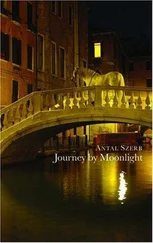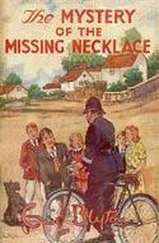This is the outer aspect of the man who is ruled by his body. However active he is, he remains fat. This is true even in his youth, and thereafter he puts weight on ‘in the twinkling of an eye’. His gaucheness is clearly a version of the fat little boy’s withdrawn and embarrassed shyness. Otherwise his obesity is not a pathological symptom; there is no need to think about mysterious glandular problems. In one respect he had a great deal in common with his ancestor Louis XIV: he too ate a huge amount.
The public dinners at which he sat with the Queen (though Marie-Antoinette absolutely refused to touch food in front of an audience) consisted of fifty courses: four soups, two large entrées —beef and cabbage, tenderloin veal spit-roasted; sixteen entrées —giblets of turkey au consommé , sweetbreads en papillotte , suckling pig, roast mutton chop, calf’s head, and so forth; four hors d’œuvres —forequarters of veal, fillet of rabbit, cold young turkey cock, leg of veal. Then six baked dishes, two intermediary entremets and sixteen small entremets —vegetables, eggs, milk dishes; next, the dessert — grapes, pomegranates, pears, bitter oranges and so forth; and last of all, four hundred chestnuts and forty-eight slices of bread and butter. It seems unlikely that he ate all of these, but it is said that he set about doing so with a will.
He was not just fat: he was slovenly. While he was still the Dauphin, the Neapolitan ambassador described him to Queen Maria Carolina as “ selvaggio e rozzo, a segno che sembra nato ed educato in un bosco ”—like a wild man of the woods. Mme Campan, who was truly well-disposed towards him, later wrote: “His features were noble enough, and expressive of a certain melancholy; his deportment was clumsy and lacked distinction; his person was worse than neglected; his hair, though tended by a skilled barber, was always unkempt, because he took no care of it. His voice was not particularly harsh, but nor was it pleasant: when he became excited in conversation, it became sharp and high-pitched.”
Along with this physical makeup went a certain boorishness. Louis had a tendency to brawling. Even after he was married he came to blows with his brother the Comte de Provence over some trifle, in the presence of their two wives. He loved crude jokes, if only to make a stand against the over-refinement of the Court. When Benjamin Franklin visited Paris it became the fashionable thing to sing the praises of the hero of American freedom and inventor of the lightning conductor, and women wore medallions bearing the inscription:
Eripuit caelo fulmen sceptrumque tyrannis
Lightning burst from the sky and dashed the sceptre from the tyrant’s grasp.
So the King had a chamber pot made in Sèvres carrying the same quotation, and sent it to the Duchesse Diane de Polignac, one of Franklin’s enthusiastic admirers.
Otherwise, his mental and moral attitudes were inherited from his father (the Dauphin, the son of Louis XV, who died young). The Dauphin had lived his exemplary married life, with the ‘gloomy Pepa’, as Louis XV called his daughter-in-law, in scorned and scornful isolation in his father’s frivolous and sinful Court, and, like so many sons, had made it his business to oppose everything his father did, to expiate his sins. He was deeply religious, immersed himself in serious studies, and gave much thought to how he might make the French people happy.
Louis XVI also enjoyed serious study. He read English readily and well (he was especially fond of Milton) and concerned himself above all with history and geography, the true subject matter of kings. But literature held little interest for him, and this was a great pity. It was a major deficiency in a French king at a time when his people read feverishly and unceasingly, and acquired their ideas about the world through the medium of the printed word.
He was deeply religious. That was how he had been raised, first by his father and then by the man entrusted with his upbringing, the Duc de Vauguyon — about whose own piety there is little to be said. But his own nature inclined him that way too, and his religion gave a deeper colouring to his innate good-heartedness and the love he felt for his people. His faith was the secret, immeasurable source of inner strength that enabled him — a man who in life was so shy and self-effacing — in his hours of trial and affliction to face death like a hero and a martyr: a death that retrospectively ennobled the memory of all he had done before.
He lived in Puritan simplicity. He loathed the pomp of the Court, and his first act after mounting the throne was to incur the bitterness of the aristocracy by trimming the royal household. Amongst its members was a class of persons known as the menus plaisirs , the ‘little diversions’, whose honour and duty it was to attend to the monarch’s pleasure. No sooner had he been crowned than their intendant La Ferté presented himself to the King, who asked him:
“Who on earth are you?”
“I am the person in charge of the ‘little diversions’, sire.”
“Well, my little diversion is to take a stroll in the park,” the King replied.
But the greatest of his virtues, and what might indeed be considered his dominant characteristic, was his goodness of heart. This was a king who spontaneously and sincerely loved his people. This sincerity shines through his remark: “ Il n’y a que Monsieur Turgot et moi qui aimons le peuple .”—It is only Monsieur Turgot and I who love the people.
Gentle and humane, he had a horror of cruelty and bloodshed. He was prone to tears and full of sensibility, as was the entire age, but in his case it came from the heart. When Chamfort’s neoclassic drama Mustafa and Zéangir was staged in the royal theatre — a play that celebrates sibling love — he shed a fountain of tears. He actually loved his own brothers and sisters, which, in the circumstances, and considering their own cooler feelings for him, was rather remarkable.
I could continue to enumerate his virtues, and that might seem well worth doing in view of all that has been said about his weaknesses. But there really is no need. In recent decades royalist historians have reiterated to the point of tedium what a kind and noble soul he was.
We must also consider how very different a king was from an ordinary mortal. From the moment of his birth, he was raised in so rarified and sheltered a world that it must necessarily have weakened his grasp of reality. He could never become familiar with the common people and the difficult raw material of their daily lives. For this reason — because they were an unknown quantity — he was every bit as uncomfortable meeting commoners as his grandfather, Louis XV, had been. The reason why he failed to recognise the danger hanging over his throne, and made no effort to counter it, is, quite clearly, that he was a king. In the clear sunny sky depicted on the ceiling of his throne room he never noticed the gathering storm clouds …
However, contrary to what I have just argued, we have also to recognise that the rulers of old lived in much greater proximity to life and to their people than those of today. Or more precisely, the people of those days lived in greater proximity to their rulers. They could enter their great halls, stroll in their parks and shout abuse at them with impunity. Louis XVI probably knew much more about his people and their moods than the leaders of society today. Somehow, both monarch and people were cut from the same cloth. The social gulf between them was confined to the external world, not the inner one. The King was more akin in spirit to his serf than the director of a modern business is to his office-boy; and more able to strike the right note when they spoke to one another.
Читать дальше












